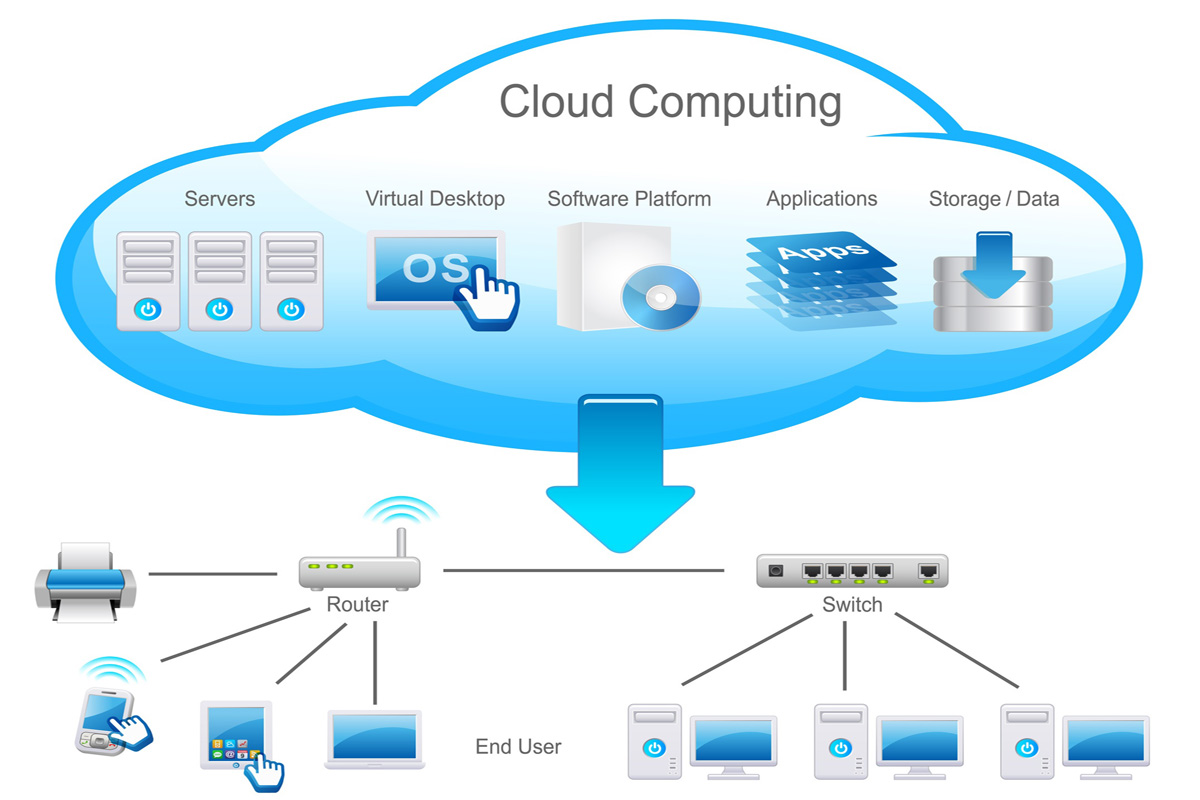What is cloud computing?
It's the buzz word of the year, but what does cloud computing actually mean? And, more importantly, what opportunities, benefits and challenges does the new model offer businesses?

Cloud computing is one of the fastest growing, and potentially most disruptive IT innovations for a generation.
The move to cloud computing is being likened to the arrival of the personal computer, a move that changed the IT face of the industry, and how businesses use technology.
Within four years, worldwide spending on could computing is expected to reach almost $150 billion, according to analyst firm Gartner.
Gartner is seeing growth in both the number of businesses signing outsourcing deals, and the size of those deals. Cloud computing programmes covering a thousand or more users are becoming more common, as chief information officers (CIOs) see cloud computing as a strategic option.
Experts are predicting that some businesses will be able to run most, if not all, of their IT services in the cloud. Evidence from smaller enterprises and start ups support this, with businesses opting to rent, not buy, much of their IT. Laptops and a good-quality internet connection can replace much of the conventional infrastructure for managing data and carrying out business processes.
For businesses with more complex needs and more critical security requirements moving all computing to the cloud might not be practical. However, it is likely that almost all businesses will move at least some applications or services to the cloud. Many have already done so, though services offered by vendors such as Google and Amazon.
As with any new or emerging technology, though, the cloud is attracting hype. The potential of cloud computing has to be tempered with some practicalities.
Sign up today and you will receive a free copy of our Future Focus 2025 report - the leading guidance on AI, cybersecurity and other IT challenges as per 700+ senior executives
Businesses might not have applications that are "cloud ready", be prepared to hand over control of critical data, be comfortable with data security arrangements or even have the bandwidth to run large parts of their business remotely. These are some of the issues that IT PRO will be exploring in more depth in the cloud computing channel.
-
 What is Microsoft Maia?
What is Microsoft Maia?Explainer Microsoft's in-house chip is planned to a core aspect of Microsoft Copilot and future Azure AI offerings
-
 If Satya Nadella wants us to take AI seriously, let’s forget about mass adoption and start with a return on investment for those already using it
If Satya Nadella wants us to take AI seriously, let’s forget about mass adoption and start with a return on investment for those already using itOpinion If Satya Nadella wants us to take AI seriously, let's start with ROI for businesses